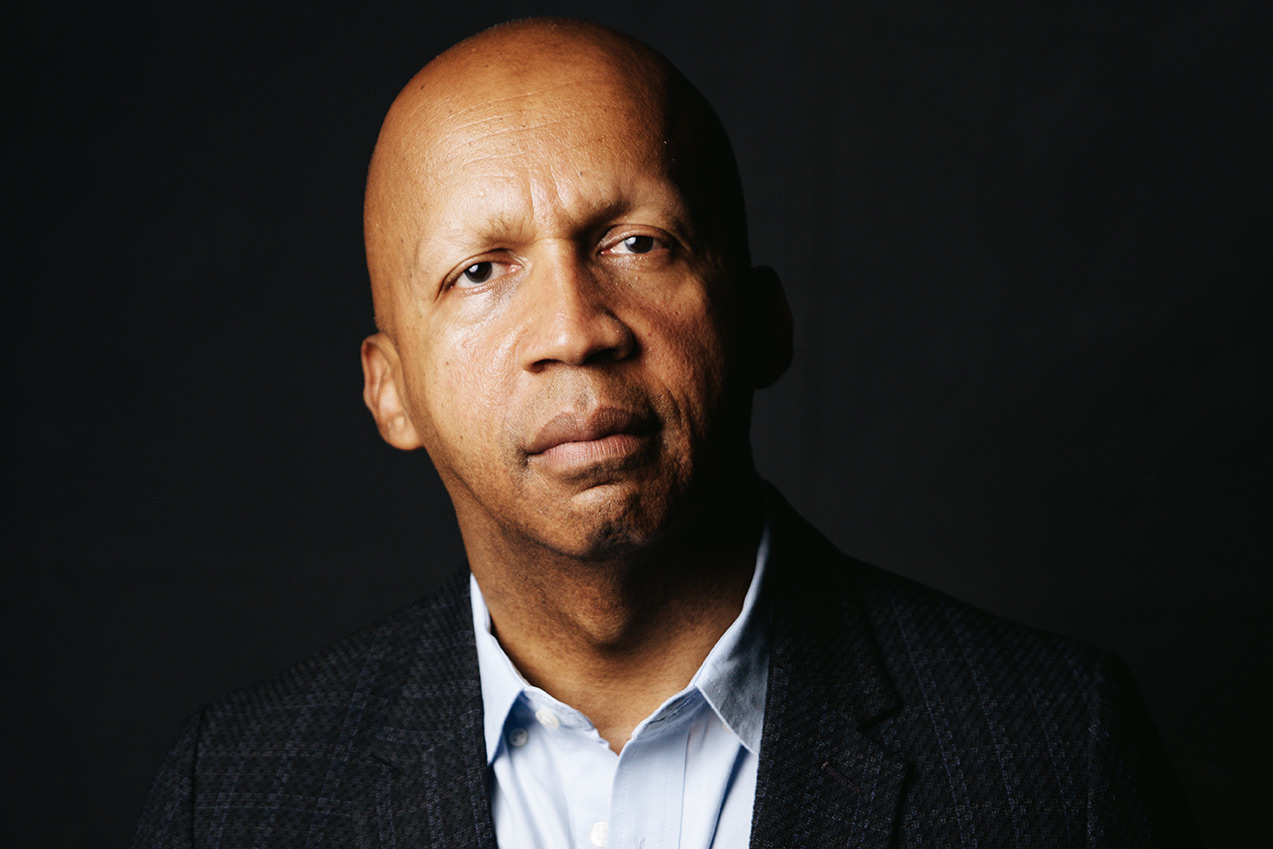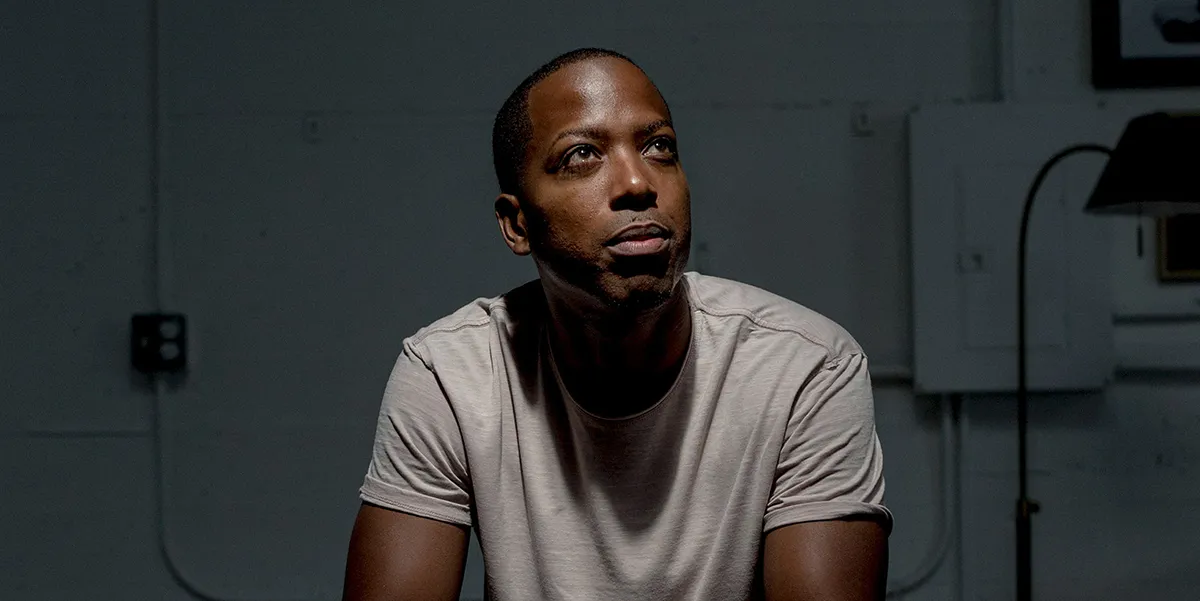You’re listening to Radio Health Journal, the trusted news source for medicine, science and technology. I’m Elizabeth Westfield. I’m Mayan Vasta Betancourt.
And I’m Greg Johnson. This week, is universal health care possible in America? What they’re thinking about is a level of health care that’s like the best of the best, that’s available all the time, and it’s free. So that’s not going to happen.
But first, how to live your life while managing a chronic disease. I hadn’t even realized how much in my life I’d lost and how much my disease had overtaken the big and the small things in my life. All that and more this week on Radio Health Journal.
If you have summer plans, then make Macy’s Summer Style Sale your first stop. That’s because you’ll find amazing deals on exactly what you need to make any summer occasion feel like a getaway. Whether you’re headed to the beach or your friend’s backyard.
We’re talking matching sets, airy linen, swimsuits, cover-ups, and so much more for 25 to 50% off. Yeah, up to half off. So no matter where you’re going, head to the Summer Style Sale going on now at Macy’s.
Savings off already reduced prices, exclusions apply. Sometimes I struggle to get to sleep. My body stopped for the day, but my mind is still running.
So I take Z-Quil. Z-Quil, the world’s number one sleep aid brand, has a range of non-habit forming products to fit you and your family’s needs. Invest in a great night’s sleep for the best you tomorrow.
I’m awake and ready to take on anything. Better days start with Z-Quil Nights. Explore our products at ZQuil.com. Uses directed, keep out of reach of children.
Whether it’s been from food poisoning or a bad bout of indigestion, we’ve all had a belly ache that’s kept us in for the night. But imagine if that one night of pain and canceled plans was your normal. Instead of having to deal with it for a few hours, it’s a constant presence looming over your life.
For many, that’s how it feels to have inflammatory bowel disease. It’s an umbrella term for chronic conditions that have an excruciating effect on the gastrointestinal tract. Most people with IBD are diagnosed by age 30, but David Merritt was ahead of the curve when his symptoms started in college.
I noticed there were some issues when I was going to the restroom and I didn’t know what was going on. I just knew that there was blood and that scared me. I thought, you know, maybe that’s cancer or something.
I didn’t know. After it didn’t go away for a couple of weeks, I then decided to talk to my parents about it. I said, well, why don’t we take you to see a doctor? And I remember actually a doctor at Northwestern Medicine diagnosed me, Dr. Nimagata.
And very quickly I was able to go into remission. IBD is a cycle of flares and remission. Merritt was able to stop his first flare-up about a month after it started, but the disease can change at a drop of a hat.
Dr. Kate Tomasino says the most common forms of inflammatory bowel disease are Crohn’s disease and ulcerative colitis. So ulcerative colitis is limited to the colon, while Crohn’s disease can affect any part of the GI tract. But the hallmark symptoms when you’re thinking of inflammatory bowel disease and what it’s like to live with that are things like urgency and diarrhea, feeling like you have to get to the bathroom right away and the stool being looser, frequency of bowel movements, abdominal pain.
Potentially, sometimes for some people, there could be weight loss associated with that. Fatigue can be a big symptom. So depending on if a person has Crohn’s disease or ulcerative colitis and then where it is in the GI tract and how severe it is will really impact how the person is experiencing the condition.
Tomasino is a clinical health psychologist and associate professor of medicine and psychiatry at Northwestern University. She says that while stress isn’t causing the disease, it can play a huge role in triggering a flare. For Merritt, stress and a bad order of sushi spurred his second flare-up that felt like having a daily dose of food poisoning.
You feel tethered to the bathroom. You’re afraid to go out. You feel, you know, weak and you’re hungry, but you also don’t want to eat, right? Like all of those horrible feelings, everyone knows them because everyone’s had food poisoning at least once.
Well, take that feeling and expand it across weeks and months and years and then take all of the ways that that impacts you for a day and think about the wearing effect it has on you over time when you don’t know what you can eat or what you can’t eat because you don’t know what’s safe or what’s going to make you sick. And the right answer is always changing. You become afraid of small outings, like going to the movies, because you don’t want to be the person interrupting the film every time you have to go to the bathroom.
There’s a lot of inconveniences or impediments in your everyday life and then there’s a lot of social stigma to it as well. No one wants to be talked about for going to the bathroom. And so those really add up to be a lot of burden and you don’t even realize how much they eat at you until they’re gone, until you’re in remission.
And I remember that feeling in 2019 when I’d been in a flare for four and a half years. I’d been hospitalized at some point in there. It had been miserable.
And by the time we figured out a medication to pull me out of that flare and get me healthy again, I was amazed. I hadn’t even realized how much in my life I’d lost and how much my disease had overtaken the big and the small things in my life. Though the flares are hard to control, Tomasino says that IBD can be a tremendous toll on your quality of life, even when in remission.
As Merritt mentioned, this constant struggle can wreak havoc on your mental health. In the whole group of people with IBD, there are higher rates of depression and anxiety and then
trauma related to the medical condition itself. So people can have post-traumatic stress from some of the medical things that they’ve been through with IBD.
Tomasino says that part of this trend comes from the inflammation. It predisposes patients to higher rates of depression. And though Merritt has been able to stay positive through this experience, he’s dealt with brief impacts on his mental health at different times in his journey.
While on a work trip in 2023, Merritt became violently sick. Two weeks later and finally back home, he couldn’t even get out of bed. I was spending hours in the bathroom a day, and I ended up having to be hospitalized for three weeks in an incredible amount of pain.
And it wasn’t really clear what was going to happen to me. It was a very scary experience. I was so afraid of what might happen to me that my heart rate was racing.
And I literally remember they were taking my blood pressure one day and the doctor walked in and my blood pressure shot up 20 or 30 points just because I was so afraid of what news the doctor might bring. And I loved my doctors. I thought my doctors were fantastic.
I feel I owe my life to them, but I was afraid. Recovering from this experience was the first time Merritt realized he couldn’t be two separate people. There could no longer be the flare version and the remission version because his actions in one state had profound impacts on the other.
Merritt says it’s helped him manage his IBD much better than before. So even though I’ve been in a mini flare over the last few weeks, it hasn’t felt like my life is that different because I have learned how to better manage both the physical and the mental side of the disease. In addition to medication and recognizing his triggers, Merritt’s tried hypnosis as a tool to help manage the disease.
Tomasino believes that the mental aspect plays a huge role in the patient’s quality of life. So figuring out how to manage that element can drastically improve the overall experience. Feeling depressed and feeling anxious is not comfortable.
It impacts quality of life in a tremendous way. It can limit ability to engage successfully in the treatments that people need to do for IBD. But then also, hopefully we’re helping with whatever inflammatory effect that depression, anxiety and stress might have that could potentially exacerbate the condition, decrease length of remission, get people hospitalized sooner or increase risk of surgery.
And we’ve seen all of those effects in the literature that if you leave this stuff untreated, that people can have worse outcomes in inflammatory bowel disease. As Tomasino mentioned, depression and anxiety can cause patients to fall off their treatment plan, which opens them up for a relapse. Taking medication every day or making doctor’s appointments can become difficult tasks when depression has sucked away all your motivation.
To combat this, Northwestern’s Behavioral Medicine for Digestive Health program is launching a screening program to recognize and treat mental health concerns with IBD patients. Tomasino, a co-director of the program, says it’s important to treat these as
separate conditions and not make patients feel as though they’re at fault for their health challenges. This is an inflammatory condition.
This is not anything that’s in anyone’s head. We really have to make sure that we’re careful around thinking about this and talking about depression and anxiety in IBD because people can take a lot of blame on themselves as though somehow this caused the condition or stress caused the condition. And that is absolutely not true.
But we know that stress can cause inflammation and depression can be associated with inflammation. They’re hoping to normalize the conversation around mental health, especially since this population is more likely to develop depression and anxiety. The program is being funded by parents of a young man who took his own life in 2024 after a long battle with IBD.
Tomasino hopes the new screening protocol helps remove some of the stigma felt by so many patients and connects them with others in the community. I think it’s really important to note that this is never anyone’s fault and that it isn’t in your head. If you’re having these mental health symptoms on top of IBD, it’s not just like you’re not able to take it or manage it.
I think a lot of times people have a lot of self-blame, but there’s something inherent in the condition that is increasing the likelihood that someone will experience depression or anxiety related to the condition. So the more we normalize this and talk about it and help people get help when they need it, the better people will be able to manage it and feel compassion for themselves as opposed to like they’re doing something wrong. And since these are two separate conditions, Tomasino says patients most likely need more than one treatment approach.
Merritt has found success using both medication and mindfulness tactics. So even though he’s currently experiencing a small flare up, he already knows the best way to get back to healthy. I’m very fortunate where I’m on a medication now that my body really responds to.
A lot of people aren’t that lucky and they spend a lot of time cycling between medications, but I found one that works really well for me. So we just increased my dosage from 30 milligrams to 45 milligrams and my body started to respond very, very quickly. Otherwise, I would say really a focus on mindfulness and other just positive forms of taking care of yourself, prioritizing reading a book or going for a walk or getting a workout and things that make you feel good, whatever that might be.
That’s really important for reducing the stress that can only make your condition worse. In addition to stress management and medication, Merritt’s realized just how important the IBD community is as a support system. During his hospitalization, a friend reached out and offered to connect him with other people who’d undergone surgery for IBD.
And I said that would be great because I was at that point on the verge of like a mental breakdown. I mean, I was so stressed in the hospital bed about what might happen to me. She put me in touch and they cleared their schedules to talk to next day.
And we talked for the days after that and we would check in on each other. And all of a sudden, right, these people I didn’t know and who had no reason to care about me were there to support me and spend hours on the phone with me to help me understand and make the best decision that I could. The Crohn’s and Colitis Foundation has chapters across the country that provide support groups and other resources for patients with IBD.
You can find more information about Dr. Kate Tomasino, David Merritt and all of our guests on our website, RadioHealthJournal.org. For more behind the scenes, follow RadioHealth Journal on Facebook, Instagram and X. Our writer producer is Kristen Farah. Our executive producer is Amira Zaveri. I’m Elizabeth Westfield.
Coming up, the technology disrupting our current health care system when RadioHealth Journal returns. Here’s comedian Howie Mandel for hands free Cozy Fit Sketchers Slip-Ins. Hey, everybody, I’m holding a new Cozy Fit Sketchers Slip-In sneaker.
And first of all, I barely know I’m holding it. It’s that light. You see, Cozy Fit is a cool new sneaker where the upper is made of a soft quilted material.
It’s kind of like a little puffer jacket for your feet, except it looks like a super stylish sneaker. Introducing new Cozy Fit Sketchers Slip-Ins, the latest comfort creation from Sketchers, featuring Sketchers new contour foam, a soft, cushy footbed that shapes your foot when you walk, softening every step. Best of all, they have slip-in technology so I can just step in and go with no bending down and no touching my shoes.
Once I start walking, you know, this is like contour foam is hugging my foot. And normally I don’t like hugs. But when it’s my Cozy Fit’s doing it, I’m all in.
Hug away, shoes. Hug away. You can find Cozy Fit Sketchers Slip-Ins at a Sketchers store, Sketchers.com or wherever stylish footwear happens to be sold.
Nice spot, Howie. Give me a hug. Give me a hug, baby.
Oh, I’m being hugged. Universal health care has been a buzzy topic for years. It’s been the focal point of heated debates and political campaigns.
But Dr. Marshall Runge thinks most people don’t have a realistic view of what universal health care would actually entail. What they’re thinking about is a level of health care that’s like the best of the best, that’s available all the time and it’s free. So that’s not going to happen.
Runge is the dean of the University of Michigan Medical School and CEO of Michigan Medicine. He says that while having full and free access to the top medicine and technology is unlikely, a more realistic model is what he calls longitudinal health. You have some level of health care that documents what’s going on, is available to you for basic problems.
It’s not going to take care of everything, but it provides that continuity and that interoperability that we lack today. People will argue all day and all night about whether the government can do that. Last time I talked about it, somebody said, yeah, people go to the DMV, you know, because they want to get rapid service.
Well, you don’t go to the DMV to get rapid service. But there are government health programs that are excellent and they’re the ones that focus around what’s the concept called a medical home. Meaning there’s a group of providers, doctors, nurses, dentists, therapists, all available in the same place.
This structure exists today in what are called federally qualified health clinics. They serve everyone, regardless of insurance status. However, they’re often overwhelmed with patients and spend a lot of money treating chronic, expensive conditions instead of prioritizing preventive care.
Still, Runge believes this model can be very effective when done well. But the initial challenge to getting this idea up and running is the shortage of primary care physicians. As someone who interacts with medical students on a daily basis, Runge has a front seat to this drop off.
In our medical school, a quarter of the class comes in thinking they want to do primary care and at graduation, which is going to be in a couple of weeks, it’s going to be 10 percent. And they worry about will they be able to repay their tuition? They worry about the fact that primary care is not well reimbursed. If you’re in some settings, primary care may feel like they’re not adequately either supported or respected.
And I think we have to change that dynamic. And one of the things I’m trying to do here at Michigan is to make it possible for people who really have a passion for primary care to follow that passion. Because if nothing is done to reverse this trend, our public health will greatly suffer.
Unfortunately, finances aren’t the only obstacle standing in the way. In fact, the greatest threat to the shortage may be the high rates of burnout physicians are experiencing. Various factors contribute to this exhaustion, including high patient workloads and after hours paperwork.
Thankfully, though there are a lot of challenges in health care at the moment, we are in an era of unprecedented solutions that Runge believes will reshape our current system. He dives into this revolution in his new book, The Great Health Care Disruption, Big Tech, Bold Policy and the Future of American Medicine. A prominent example in his book is the role of technology, particularly A.I., in making health care more efficient.
Runge says some A.I. systems may be pivotal in the fight against physician burnout. A big issue doctors run into is having to work after hours to catch up on all the paperwork they didn’t get to during the day. There are currently a few systems that are already reforming these administrative tasks.
There’s a technology I really only became aware of in the last couple of years called Ambient A.I. What Ambient A.I. does is it is present. It listens. We always ask, is it OK if we use A.I. to record this, our interaction? Some patients don’t want that, but most are just fine with it.
What is great, though, is it’s not just a transcription. The A.I. gathers all the information. It puts it in the context of my or your health problems that it knows from the electronic medical record.
And then it generates a really excellent medical note such that when I finish seeing a patient, I can look at that note in about two or three minutes and see if there’s something I need to correct. If not, I’m done with that process. This technology is not only helpful to the physician, but it can also be a tool to empower patients.
The best way to stay on top of your health status is to get it directly from the source, your medical record. However, these documents are often filled with pages and pages of complex language and data that scare many people off. But now A.I. can streamline that whole process.
It’s often 50, 60 pages of what seems like repetitive and a lot of nonsense in there. If you make a PDF of that and feed it into your favorite A.I. engine and say, generate a two page summary in about two minutes, it gives you a fantastic two page summary of what the major issues are, what needs to be dealt with, what you need to do as a person to try to improve your health. And the reason I’m giving that as an example is the physicians and all care providers have to look through that whole medical record, and that takes forever and they may miss things because everybody’s in a hurry.
So when you think about ways that A.I. can reduce the workload and reduce burnout and stress on care providers, I think that can make a huge difference. Making medical records more efficient is a game changer, but it’s not the only solution needed in this space. An issue that’s been a thorn in the medical community’s side for years is the inability for records to be shared between providers and practices.
Not all electronic health record systems are made equally, which makes sharing information difficult at best. And some of that is, I’m convinced, is intentional. This has been a principle that’s been out there for a long time, but it’s not really in the interest of some companies that make electronic medical records to make that easy.
And so they don’t make it easy. I mean, they could make it easy, but they don’t make it easy. Getting past this hurdle opens up so many more possibilities for innovation in the health care space.
For example, companies like Amazon are disrupting the industry with forward thinking ideas that increase access to doctors and medication. They’ve identified the pain points and are providing solutions like offering on-demand virtual care. However, without the easy sharing of medical records, Runge worries it’ll lead to fragmented care where a patient isn’t getting the full picture of their health.
I saw an advertisement for Amazon recently, I think it was Amazon, one of the 24-7 services that said, well, you’re getting on an airplane, you’re worried that you have a urinary tract infection. Get on Amazon clinic and your medicine will be waiting for you when you get off the plane. And that’s pretty cool.
Of course, it presumes that that diagnosis can be made over the phone and in many cases it can. But the other aspect of that is none of those 24-7 clinics have access to your medical record. So what if there’s something in your medical record that you forgot to say or maybe you don’t even know about that would be a contraindication, would be bad for you to get a certain antibiotic or to get a certain therapy? Or what if whatever you receive is something
that your primary care physician, if you have one, would want to know about? There’s no back and forth there.
Which is why making health records more easily shareable will be such a game changer. It’s important to note that creating all of these solutions to improve public health will only work if the public cares about their health. We can have all the technology in the world and still fall behind because we’re patching up symptoms instead of focusing on preventive care.
One of the ways that we can better afford health care is to become healthier. But as it is now, we don’t focus so much on becoming healthier. We focus a lot on I want to have access to the most advanced care.
We expect everything from health care and health care cannot deliver everything. So as we demand more from health care, Runge believes we need to also demand more of ourselves and have a lifestyle that supports health and longevity. Join us next week as Runge explains how placing preventive medicine at the center of health care will lower costs and create a healthier America.
You can find more information about Dr. Marshall Runge and all of our guests on our website, RadioHealthJournal.org. Our writer-producer is Kristen Farah. Our production manager is Jason Dickey. I’m Greg Johnson.
RadioHealth Journal returns in just a moment. If you have summer plans, then make Macy’s Summer Style Sale your first stop. That’s because you’ll find amazing deals on exactly what you need to make any summer occasion feel like a getaway.
Whether you’re headed to the beach or your friend’s backyard, we’re talking matching sets, airy linen, swimsuits, coverups, and so much more for 25 to 50% off. Yeah, up to half off. So no matter where you’re going, head to the Summer Style Sale going on now at Macy’s savings of already reduced prices, exclusions apply.
Progressive knows there are some surprisingly expensive things in life, like frames, because you found a classic seventies concert poster. But when you went to get it framed, you realize the frame will cost about four times the amount of the poster, which is actually absurd because no one will be looking at the frame. And if they are, then you severely overestimated how cool this poster is.
But then you remember by switching your home and auto to progressive, you could save hundreds and put it towards a classic seventies concert poster in an absurdly overpriced frame. Progressive Casualty Insurance Company affiliates and other insurers not available in all states. At Charmin, we heard you shouldn’t talk about going to the bathroom in public, so we decided to sing about it.
Light a candle, pour some wine, grab a roll, the soft kind for a little me time. Charmin ultra soft, smooth tear, wavy edges for my rear, so let the softness caress your soul. Just relax, you’re on a roll, Charmin ultra soft, smooth tear, Charmin ultra soft, smooth tear has the same softness you love.
Now with wavy edges that tear better than the leading one ply brand. Enjoy the go with Charmin. Still getting around to that fix on your car? You got this.
On eBay, you’ll find millions of parts guaranteed to fit. Doesn’t matter if it’s a major engine repair or your first time swapping your windshield wipers. eBay has that part you need ready to click perfectly into place.
For changes big and small, loud or quiet, find all the parts you need at prices you’ll love, guaranteed to fit every time. But you already know that. eBay, things people love.
Eligible items only, exclusion supply. Medical Notes this week. Your aura may just be a mixture of oils and fats on the skin.
Scientists have discovered that perfumes, lotions, and personal products interact with what’s called our human oxidation field. It’s a constant cloud of molecules we emit that can negatively interact with our environment and worsen our air quality. Interestingly, research in Science Advances shows that fragrances can suppress this effect.
Scientists still don’t fully know why we yawn, but they’re getting closer. It turns out yawning isn’t just about boredom or tiredness. Researchers now think yawning helps prepare us to change from a state of low activity to high activity.
For example, when you wake up and yawn, it’s anticipating your move to get up and moving. However, a lot is still unknown, and researchers hope to soon understand the connection between yawning and empathy. The debate over fluoride is back in the spotlight.
It’s been a practice in America to help prevent tooth decay, so why are some states banning it? Well, the measurements are super important. Not adding enough fluoride to drinking water can lead to cavities, but adding too much can cause tooth and bone issues. Experts say the decision to add fluoride to drinking water should be region-specific and science-based.
And finally, urban rats may be more than just an annoying pest. New research in the journal Plus Neglected Tropical Diseases reveals that city rats are a big threat to public health. They spread deadly bacteria through urine that gets into the soil, water, and nearby environment.
Since it’s not realistic to get rid of all rats, researchers are focusing on how to best control their reproduction and migrations. And that’s Medical Notes this week. I’m Maayan Vastabetancourt.
If you have summer plans, then make Macy’s Summer Style Sale your first stop. That’s because you’ll find amazing deals on exactly what you need to make any summer occasion feel like a getaway. Whether you’re headed to the beach or your friend’s backyard, we’re talking matching sets, airy linen, swimsuits, cover-ups, and so much more for 25 to 50 percent off.
Yeah, up to half off. So no matter where you’re going, head to the Summer Style Sale going on now at Macy’s. Savings off already reduced prices.
Exclusions apply. Can your pad absorb everything and stay fresh? Always Radiant with Flex Foam can. Get up to zero leaks, zero odor, and zero feel because Flex Foam is the only pad with a flexible foam core.
You heard me, foam. Always Radiant is so thin it feels like nothing, yet protects like nothing else. Can your pad do that? For up to 100 percent leak-free protection, try Always Radiant to see what Flex Foam can do for you.
Thank you for joining us this week and every week as we break down the science stories you need to know. You can find all of our past segments and guests on our website, RadioHealthJournal.org or wherever you listen to podcasts. Follow us on Instagram, Facebook and X for daily content and tune in next week for another edition of Radio Health Journal.














